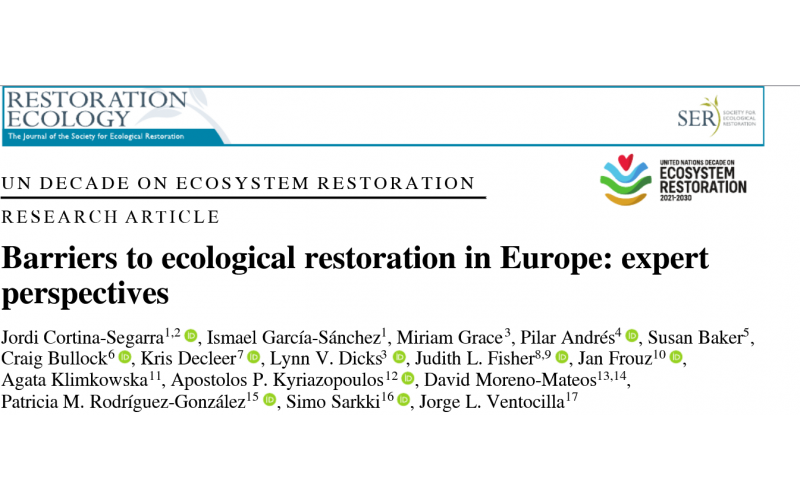Ecological restoration is key to counteracting anthropogenic degradation of biodiversity and to reducing disaster risk. However, there is limited knowledge of barriers hindering the wider implementation of restoration practices, despite high-level political priority to halt the loss of biodiversity. In Europe, progress on ecological restoration has been slow and insufficient to meet international agreements and comply with European Union Nature Directives. They assessed European restoration experts' perceptions on barriers to restoration in Europe, and their relative importance, through a multiple expert consultation using a Delphi process. They found that experts share a common multi-dimensional concept of ecological restoration. Experts identified a large number of barriers (33) to the advancement of ecological restoration in Europe. Major barriers pertained to the socio-economic, not the environmental, domain. The three most important being insufficient funding, conflicting interests among different stakeholders, and low political priority given to restoration. Their results emphasize the need to increase political commitment at all levels, comply with existing nature laws, and optimize the use of financial resources by increasing funds for ecological restoration and eradicate environmentally harmful subsidies. The experts also call for the integration of ecological restoration into land-use planning and facilitating stakeholders' collaboration. Their study identifies key barriers, discusses ways to overcome the main barriers to ER in Europe, and contributes knowledge to support the implementation of the European Biodiversity Strategy for 2030, and the EU 2030 Restoration Plan in particular.

